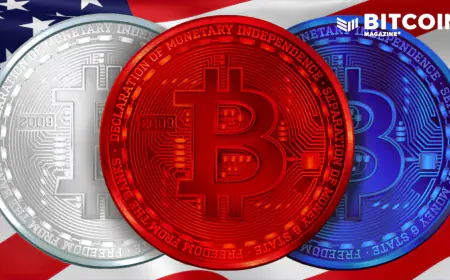Peter Schiff sparks debate: Bitcoin ETFs’ U.S. hours limit liquidity
Gold advocate Peter Schiff has once again stirred controversy within the cryptocurrency community by highlighting what he perceives as a significant flaw in Bitcoin exchange-traded Funds (ETFs). Schiff pointed out that, unlike the 24/7 global operation of the Bitcoin market, the liquidity of Bitcoin ETFs is limited to U.S. market hours. This limitation becomes apparent […]

Gold advocate Peter Schiff has once again stirred controversy within the cryptocurrency community by highlighting what he perceives as a significant flaw in Bitcoin exchange-traded Funds (ETFs). Schiff pointed out that, unlike the 24/7 global operation of the Bitcoin market, the liquidity of Bitcoin ETFs is limited to U.S. market hours. This limitation becomes apparent during times of market volatility, such as the recent overnight price crash, where ETF buyers find themselves unable to exit their positions until the market reopens.
The ongoing price decline in Bitcoin has intensified concerns among investors, with the leading cryptocurrency nearing the $60,000 level earlier today. Over the past 24 hours, the market has witnessed over half a billion dollars in liquidations, reflecting a lack of resilience amidst relentless selling pressure.
Bitcoin ETFs facing major outflows
Bitcoin ETFs have been experiencing significant outflows, contributing to the souring sentiment surrounding the cryptocurrency. James Seyffart, a notable ETF analyst at Bloomberg, countered Schiff’s argument by highlighting that the liquidity issue described is not unique to Bitcoin ETFs. He emphasized that similar constraints exist for gold-based ETFs and international equity ETFs. Seyffart also noted that market-moving events can occur outside of trading hours, impacting ETFs when markets are closed.
Despite Seyffart’s perspective, Schiff remains steadfast in his critique of Bitcoin ETFs, asserting that gold does not experience overnight crashes like its digital counterpart. He contends that this fundamental difference provides gold investors with a sense of security that Bitcoin ETF investors lack.
Federal Reserve rate cut decision adds bearish pressure
Adding to the downward pressure on Bitcoin prices is the anticipation surrounding the Federal Reserve’s upcoming rate cut decision. Analysts suggest that this looming event is another bearish headwind for the cryptocurrency market. The uncertainty surrounding monetary policy decisions often leads to heightened volatility in financial markets, including cryptocurrencies.
As Bitcoin continues to grapple with multiple challenges, including liquidity concerns, outflows from ETFs, and macroeconomic uncertainties, investors remain cautious about the near-term outlook for the digital asset. The recent price decline of nearly 20% from its recent high underscores the prevailing pessimism among market participants.
Peter Schiff’s critique of Bitcoin ETFs has reignited the debate surrounding the suitability of these investment vehicles in volatile market conditions. While some argue that liquidity issues are not unique to Bitcoin ETFs, Schiff maintains that the inherent differences between gold and Bitcoin make the former a more reliable store of value. With ongoing market turbulence and looming macroeconomic uncertainties, the resilience of Bitcoin and its associated investment products remains a topic of intense scrutiny among investors.
What's Your Reaction?









































































































